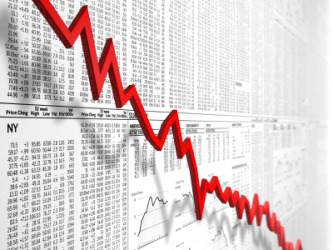Impacts of Economic Recession on Big Companies
Global economic recessions tend to have following negative implications for big companies:
Revenue and profits decline
Recession caused some businesses to go out of businesses most of them suffered lowered levels of sales and profit. This may negatively affect on both short term survival (less cash) and long term survival of the company. And moreover, the recession has repercussions still on most businesses as their lost revenue is slowing them down now from predetermined goals.
Manufacturer cuts back on hiring new employees
As most of the manufacturers try to save some costs on labour, this adversely affects on the companies overall efficiency or the businesses may even lose skilled workforce who are hard to employ in non-recession periods. Moreover, as every business cuts labour force, the unemployment rates rise within the country causing huge number of employees losing their vital skills due to employment gaps.
Manufacturer may stop buying new equipment
This may inpact on the long term plans of the company as it may spend on capital expenditure. Another effect of this one could be low quality of goods or not safe previous equipment to work with.
Ceases research and development
The large companies like J&J or GSK mainly survive due their extended research facilities. Due to recession they may not be able to secure the future market share in the market place with their newly developed products.
Stop new product rollouts
Moreover, businesses may also feel insecure to rollout their new products because of the recession and low levels of demands. Therefore, innovative companies may suffer more as their share of revenue comes from introduces the new product to the market place.
Expenditure for marketing and advertising may be cut
Due to declined revenue, the companies may not be able to afford to spend hardly anything on promotional costs.
Falling stocks and Slumping dividends
The typical scenario in recessionary period is falling shares and slumping dividends or sometimes no dividend at all. When the revenue declines, the company may not be able to pay out dividends due to extra cash shortage. If institutional shareholders are holding majority of shares, they sell the underperforming company’s shares and buys the one performing better. This further depresses the company’s share prices.
Bankruptcy
Due to recession, many companies went bankrupt and this was mainly due to the fact that the company could not collect its accounts receivable assets from its customers.
Benefit cuts
Many large organizations also see their bonuses or benefits cut by employers in order to save some cash.
Cuts to quality of goods and services
As the businesses try hard to cut costs and save, they may also touch the product and service quality that may further lower the revenue.

